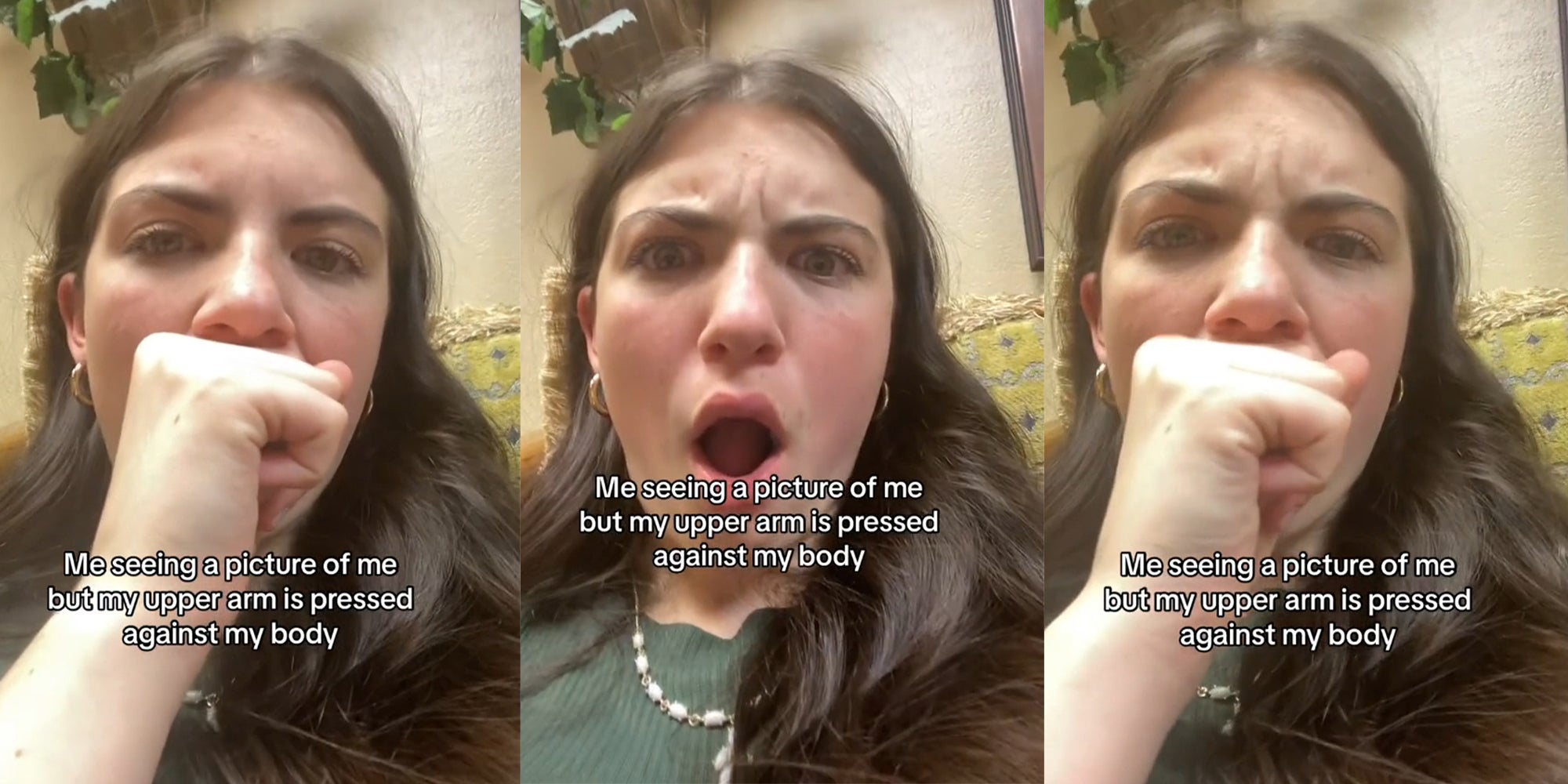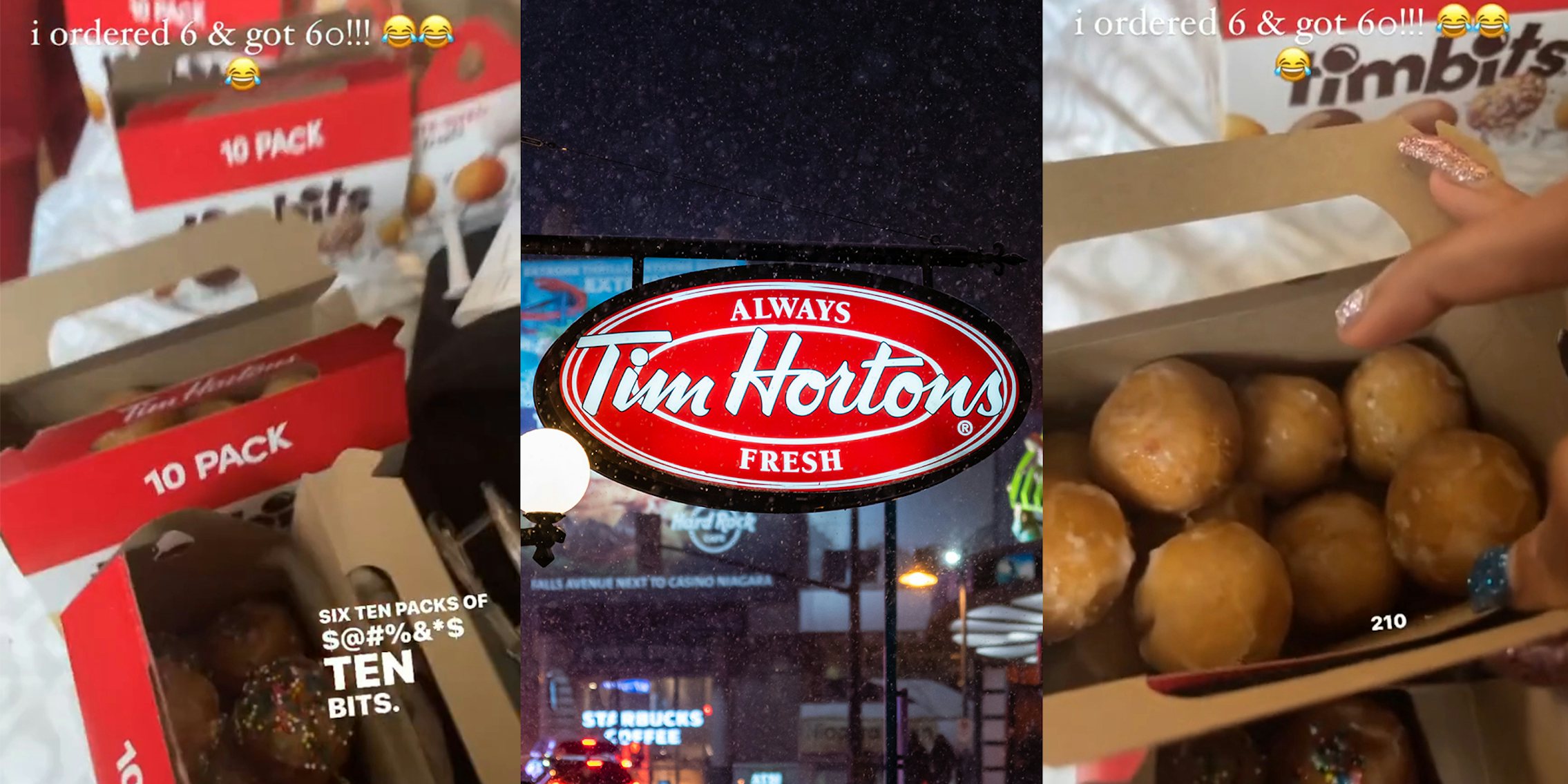Unfortunately, fatphobia on TikTok is relentless. While some videos and trends are clearly derogatory toward fat people, others masquerade as being self-deprecating.
The latest fatphobic trend on TikTok is the latter. The trend was ignited by an audio that consists of a woman freestyling off a verse from "Slut Me Out," an NLE Choppa song.
"Ass real fat, I can make it get fatter. Wanna see a magic trick? Here go a salad," the woman raps. "You big fatass bitch, you meat to meat, all you do is eat to eat."
The audio has been used in almost 15,000 TikToks, many of which are about female TikTokers experiencing body image issues and seeming to call themselves a "fatass bitch."
"Me seeing a picture of me," one TikToker wrote in her video's overlay text. "But my upper arm is pressed against my body."
"Me last year when I gained all the healthy relationship weight and thought I looked good asf in my swim suit," another wrote. In her video's caption, she wrote that she hopes she doesn't gain weight again.
Other TikTokers have received millions of views when making videos about how they don't like how their armpits stick out of their tank tops using the audio.
It's worth noting that all of the aforementioned TikTokers are thin women.
I'm not alone in seeing the trend for exactly what it is (veiled fatphobia): Many TikTokers have spoken out about how harmful the videos are.
"It's not funny. It's not quirky," TikToker Marielle Greguski said in a video. "You're causing irreparable damage to people's psyches."
And that is because these videos teach viewers to hate their bodies. Seeing people, especially thin TikTokers, call themselves or specific parts of their bodies "fat," clearly in a negative way, makes us re-evaluate what we think about our own bodies.
After seeing these videos, I might think "Does my arm look fat pressed up against my body? Do I still look good in a swimsuit after gaining weight? Should I be making an effort to avoid weight gain?" And after seeing other people hating on their bodies (and doing so publicly), I might do the same as well.
Case in point, one TikToker shared that the trend makes her "feel fat," because after videos in which TikTokers shared their weights, hers was higher.
Why it matters
Even if you're just calling yourself fat on TikTok, it affects others: Calling yourself "fat" in a negative way is fatphobic because it demonizes the concept of fatness.








No comments:
Post a Comment
Keep a civil tongue.